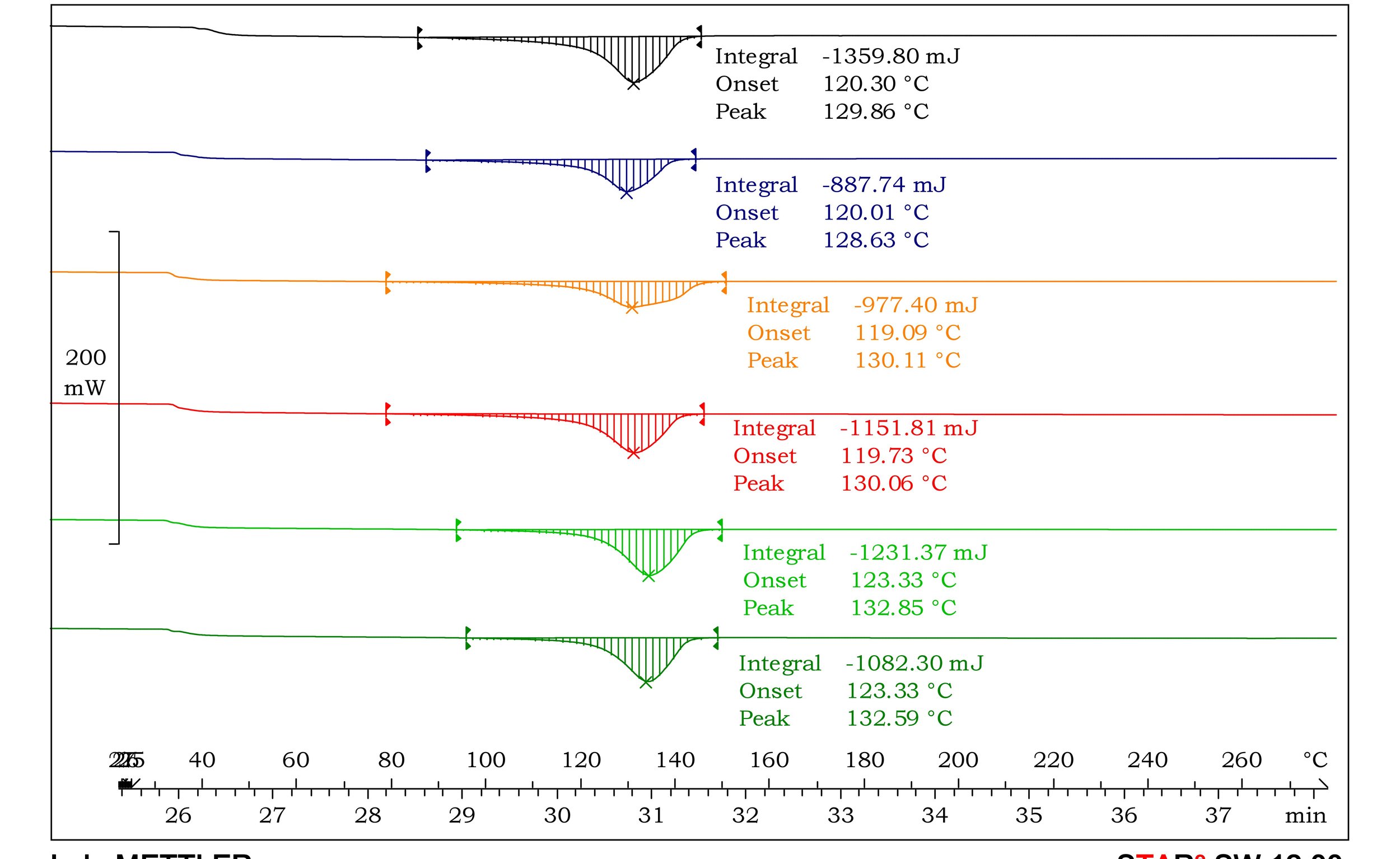Differential Scanning Calorimetry
Reliable Phase Change & Calorimetric Testing
What is Differential Scanning Calorimetry?
FAI uses differential scanning calorimetry (DSC) as a powerful tool in determining phase transitions of plastics and polymers. These phase transitions:
• Melting Point (Tm)
• Glass Transition Temperature (Tg)
• Energy Absorbed (Hm) while melting
• Crystallization Point (Tc)
• Energy Released (Hc) during crystallization
Allow for the determination of the material composition. DSC analysis operates by determining how much energy is required to heat a pan containing a sample compared to an empty reference pan. If the sample undergoes an endothermic (absorbs heat) or exothermic (gives off heat) reaction, the sample pan will require more or less energy to increase the temperature at the same rate as the reference pan. By measuring the difference between the energy applied to each heater as the temperature is increased, the energy consumed or released by the sample can be determined.
Applications
Every material has a unique "thermal curve," or fingerprint. Some clients have used DSC analysis to identify a suspect material, usually a polymer. FAI can run a known standard polymer/plastic such as PVC and compare its thermal curve to that of an unknown standard. This method, combined with FT-IR, is a very cost-effective way to identify polymers. others have used it to determine the heat given off at certain phase transitions. Perhaps the amount of energy absorbed by an epoxy as it cures is important for the manufacturer to figure out how much heat to apply during the curing process, or to check for residual cure. DSC is very flexible. If you're not sure whether or not DSC is the solution to your materials testing problems, don't hesitate to give us a call or request a quote.
Samples
Differential scanning calorimetry requires a small sample (10-15mg) that is placed into an aluminum pan with a sealed lid. This pan is then placed into the DSC unit by an autosampler robot. Each sample is analyzed by Differential Scanning Calorimetry twice (in duplicate) at no additional charge to ensure consistency.
Related Services: Thermogravimetric Analysis
Contact us for more information.

